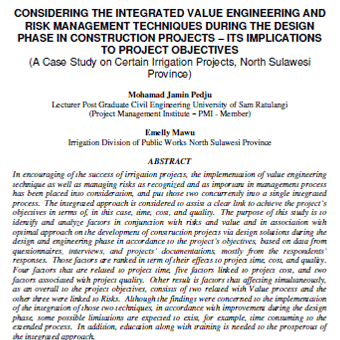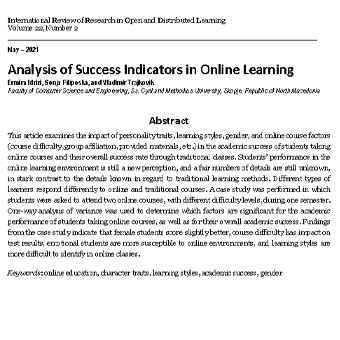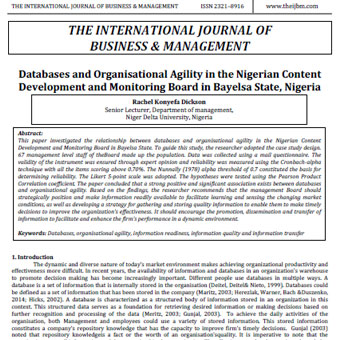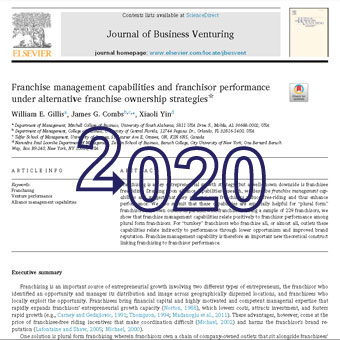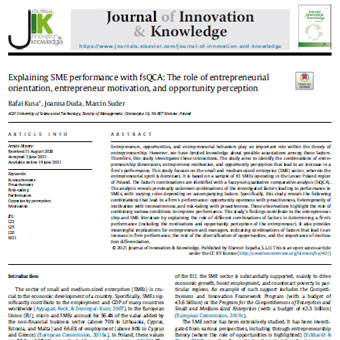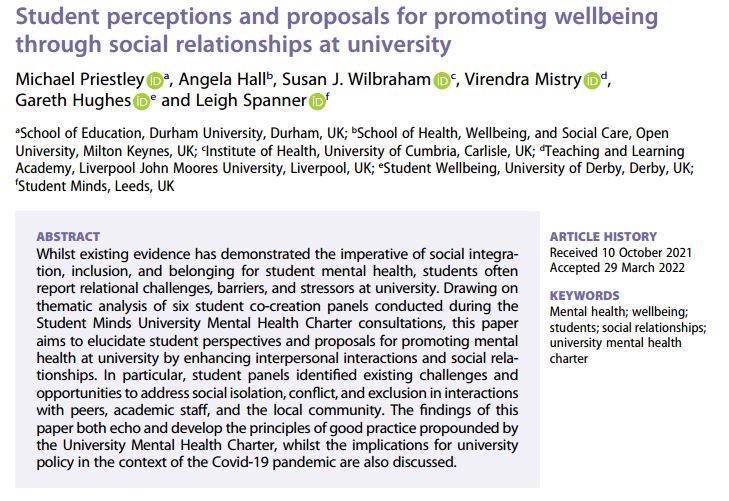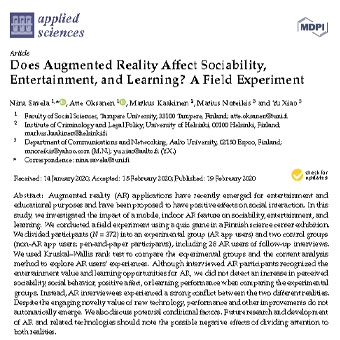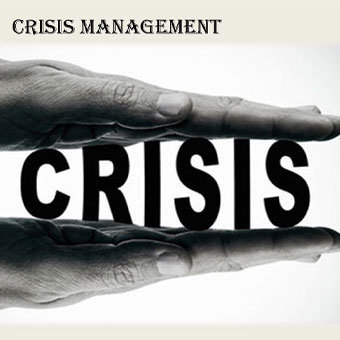عنوان فارسی مقاله:تلفیق تکنیک های مهندسی ارزش و مدیریت ریسک در حین فاز طراحی در پروژه های ساخت و ساز – تاثیرات آن بر اهداف پروژه
چکیده
از لحاظ تشویق برای موفقیت در پروژه های آبیاری ، پیاده سازی تکنیکهای مهندسی ارزش همانند مدیریت ریسک به عنوان یکی از فرایند های مهم مدیریت ، در نظر گرفته شد و آن دو به صورت همزمان ، به یک فرایند یکپارچه تلفیق شدند. این رویکرد یکپارچه ، برای کمک به یک ارتباط روشن برای دستیابی به اهداف پروژه از لحاظ زمان ، هزینه و کیفیت ، در نظر گرفته شدند. هدف این مطالعه ، شناسایی و آنالیز شاخص های مرتبط با ریسک و ارزش همراه با رویکرد بهینه در توسعه پروژه های ساخت از طریق راه حل های طراحی در حین مرحله طراحی و مهندسی مطابق با اهداف پروژه ، بر اساس اطلاعات جمع آوری شده در پرسش نا مه ها ، مصاحبه ها ، اسناد پروژه ، و عمدتا پاسخ مسئولین پروژه ، میباشد.
این شاخص ها بر اساس تاثیرشان بر روی پروژه از لحاظ زمان ، هزینه و کیفیت ، رتبه بندی شده اند. چهار شاخص مربوط به زمان پروژه بوده ، پنج شاخص مربوط به هزینه و دو شاخص در رابطه با کیفیت پروژه میباشد. سایر نتایج ، شاخص هایی هستند که به طور همزمان ، به عنوان اهداف کلی پروژه ، شامل دو شاخص بوده که مربوط به فرایند ارزش میباشد و سه شاخص که به ریسک مربوط میشود.
هرچند که یافته ها در رابطه با پیاده سازی یکپارچه و تلفیقی این دو تکنیک مطابق با بهبود و توسعه در حین فاز طراحی بود ، اما انتظار میرود که برخی محدودیت ها نیز ، مانند وقت گیر بودن روند توسعه پروژه ، وجود داشته باشد. علاوه بر آن ، آموزش همراه با یادگیری نیازمند یک روند یکپارچه موفق میباشد(تکنیک های مهندسی ارزش و مدیریت).
- لینک دانلود فایل بلافاصله بعد از پرداخت وجه به نمایش در خواهد آمد.
- همچنین لینک دانلود به ایمیل شما ارسال خواهد شد به همین دلیل ایمیل خود را به دقت وارد نمایید.
- ممکن است ایمیل ارسالی به پوشه اسپم یا Bulk ایمیل شما ارسال شده باشد.
- در صورتی که به هر دلیلی موفق به دانلود فایل مورد نظر نشدید با ما تماس بگیرید.
 متن به فارسی | ترجمه مقالات و متون علمی | ترجمه و دانلود مقالات و انواع متون علمی و ادبی و پذیرش سفارش ترجمه
متن به فارسی | ترجمه مقالات و متون علمی | ترجمه و دانلود مقالات و انواع متون علمی و ادبی و پذیرش سفارش ترجمه
